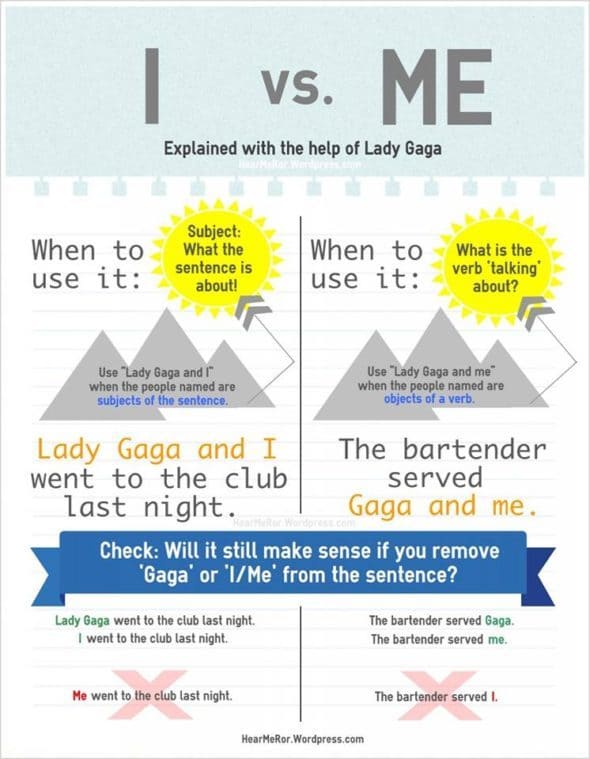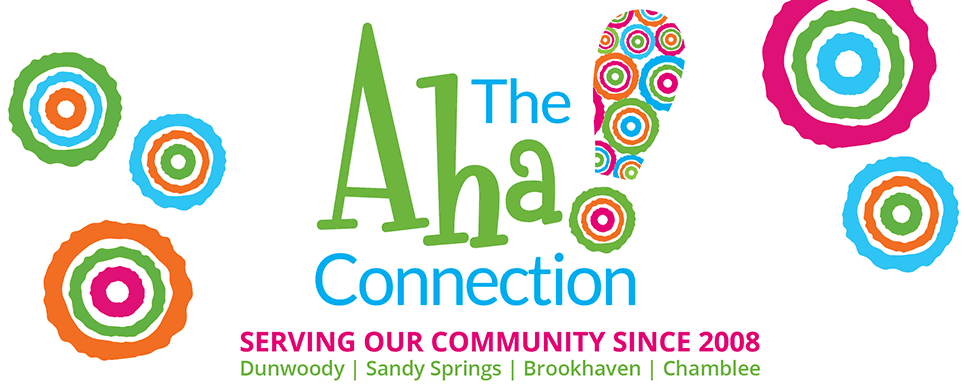I vs. me
by Kate Asbury Larkin
 Let me just say, if I ever go off the deep end, it will be because of “I” and “me” being misused (or because people won’t turn on their headlights). This is such an easy rule to follow. So many people think “I” is always appropriate-but it’s not.
Let me just say, if I ever go off the deep end, it will be because of “I” and “me” being misused (or because people won’t turn on their headlights). This is such an easy rule to follow. So many people think “I” is always appropriate-but it’s not.
The very (very) easy way to remember this is to remove the other person from the sentence.
For example:
“Anna and I went to the store.”
Take Anna out; would you say “Me went to the store?”
“Come join Bo and me at the game.”
Remove Bo; would you say “Come join I at the game?”
The technical, official meanings and reasons and stuff are too much mumbo-jumbo, so just remember to say the sentence (to yourself) without the other person and you’ll be good to go.
While we’re at it, let’s look at “myself.”
“Myself” is a reflexive pronoun. Think about looking into a mirror and seeing your reflection. You’d say, “I see myself in the mirror.” You see your reflection, and myself is a reflexive pronoun.
Other reflexive pronouns include himself, herself, yourself, itself, and themselves. A reflexive pronoun is always the object of a sentence; it can never be the subject. The subject is the one doing something in a sentence and the object is the one having something done to it. If I step on Fido, I am the subject and Fido is the object.
You would never say, “Myself stepped on Fido,” so you would also never say, “Joel and myself stepped on Fido.”
Another case where it is correct to use myself is when you are both the subject and the object of a sentence. For example, “I see myself playing marimbas,” or, “I’m going to treat myself to a massage.” In both of these cases you are the object of your own action, so “myself” is the right word to use.
Think about how you would say/write the sentence if you were the only one in it, and then use that pronoun. For example, “Please contact me.”
I feel so much better now. ![]() #memyselfandi #fidoisfine #grammarpolice
#memyselfandi #fidoisfine #grammarpolice










Thank you, thank you, thank you. This is the bane of my existence (and the headlights, too)! Makes me crazy!